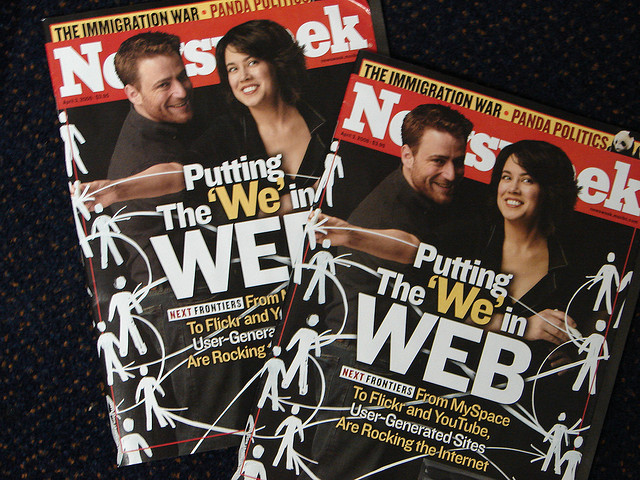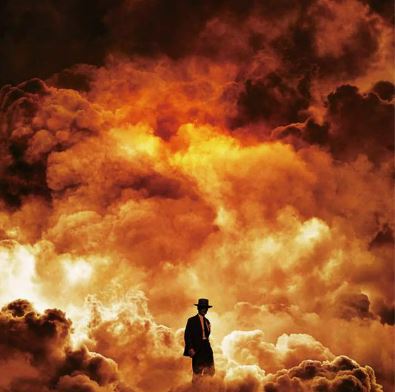Why ‘Oppenheimer’ is relevant as the world confronts threats of a nuclear war
By Wendell Gaa
“Now I am become death, the destroyer of worlds…” the very text from a piece of Hindu scripture which ran through the mind of J. Robert Oppenheimer, the globally heralded scientist who led the Allied project which gave birth to the world’s first nuclear weapon that ended the Second World War in 1945.
As he and a group of other scientists and military personnel witnessed the top-secret detonation of the very first atomic bomb on July 16, 1945 at a desert site near Los Alamos, New Mexico, the course of world history was forever changed. The United States which had emerged as the strongest leader of the Western Allied nations now had the catastrophic power to put an immediate end to the conquest ambitions of Imperial Japan after the earlier defeat of its Axis partner Nazi Germany. It is this very predicament and the ethical reasoning behind the wielding of such power that dominates the conversation of director Christopher Nolan’s latest film aptly titled “Oppenheimer.”
This movie is Nolan’s most mature work yet and considering his other modern cinematic classics such as “The Dark Knight” and “Inception,” this is truly a big deal coming from a director who excels in contemporary storytelling with complex and timely themes. At exactly three hours long, “Oppenheimer” is a biography of sorts about the “father” of the atomic bomb, but it is also very much about the moral quandaries which we as human beings must deal with whenever we are emboldened with ideas and innovations that challenge our own inner morals.
Knowing how the post-World War II era of global politics was dominated by Cold War tensions between the U.S. and Russia with the lingering threat of nuclear war looming over everyday life, one can only imagine the burden of responsibility and guilt which bore down the soul of Oppenheimer after realizing how his scientific atomic project changed the trajectory of global civilization to a point of no return. He attained celebrity status in the U.S. after the nuclear bombs which he “created” were dropped on Hiroshima and Nagasaki, forcing Japan to surrender and hence ending the war. Whether or not you as a movie viewer feel that Oppenheimer is a historic hero, or accountable for the ever-constant threat of a worldwide nuclear apocalypse, is a debate which the film will leave you pondering over. Regardless, Nolan’s film humanizes the physicist to such emotional depths which only Irish actor Cillian Murphy can depict onscreen.
Fascinatingly, this film is the first script written by Nolan in the first-person perspective, and this is evident how the movie narrative is told almost entirely from Oppenheimer’s point of view. Murphy excellently carries the film as his screentime presence is nearly throughout its entire run and his personal conviction, angst, skepticism, and ultimately regret towards leading the creation of the atomic bomb is, to say the very least, Oscar worthy and needless to say this is his best acting performance in a film directed by Christopher Nolan, with whom he has collaborated with in other projects, notably the “Dark Knight” trilogy as the subtly creepy comic supervillain Jonathan Crane/Scarecrow, and in “Dunkirk,” another World War II-era epic.
This film further reveals other interesting aspects about Oppenheimer’s life of which I was previously unaware of, notably his Jewish background. It is a huge incentive for him to partake in the atomic project due to the global threat of the genocidal antisemitism of Hitler and Nazi Germany. His close partnership with the legendary scientist Albert Einstein whose famous Theory of Relativity lay the groundwork for the research which led to the creation of nuclear technology.
The supporting cast here is flawless, with standouts by English actress Emily Blunt as Oppenheimer’s contested yet loyal wife Kitty, and Robert Downey, Jr., who is unrecognizable as Lewis Strauss, a senior U.S. Atomic Energy Commission member and serves as the film’s “antagonist” to Oppenheimer who is hell-bent on bringing him down at any cost.
“Oppenheimer” serves as a commanding cautionary tale of the inherent risks and perils of unyielding power, which if not handled with care and responsibility, could lead to the most devastating consequences imaginable. It is particularly relevant to our current times given how apart from nuclear capabilities, our world is now only beginning to come to terms with yet another emerging technological force with the potential for either good or ill, Artificial Intelligence.
© The FilAm 2023












